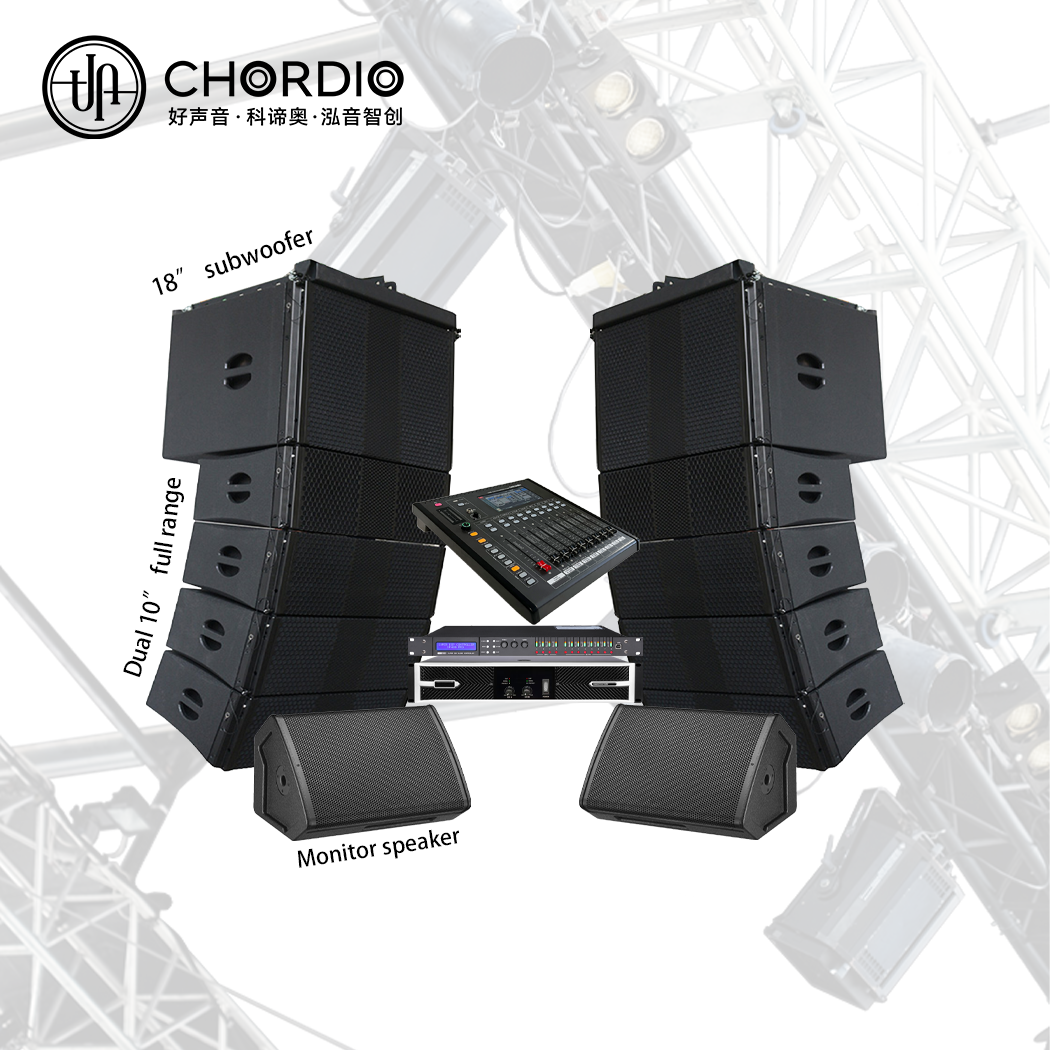The Evolution of Professional Audio Solutions for Modern Venues
The landscape of professional audio has undergone a remarkable transformation in recent years, with modular PA sound systems emerging as the preferred choice for venues of all sizes. These versatile systems represent a significant leap forward from traditional fixed installations, offering unprecedented flexibility and scalability that modern entertainment spaces demand. As venues face ever-changing requirements for different events, the adoption of modular PA sound systems has become not just a trend, but a necessary evolution in audio technology.
Today's venue managers and audio professionals recognize that the ability to adapt and reconfigure sound systems is paramount to meeting diverse event needs. Whether it's an intimate acoustic performance one night or a full-scale electronic music event the next, modular PA sound systems provide the versatility required to deliver optimal sound quality for every occasion.
Key Benefits of Modular Sound System Architecture
Unmatched Flexibility in Configuration
Modular PA sound systems excel in their ability to be customized for different spaces and applications. Venue operators can easily add or remove components to create the perfect sound coverage for any event size or type. This adaptability extends to both horizontal and vertical scaling, allowing for precise control over sound dispersion patterns and coverage areas.
The modular approach enables venues to start with a basic system and expand it over time, making it an economically sound investment. Components can be rearranged, stacked, or spread out to accommodate changing room layouts or audience configurations, ensuring optimal sound delivery regardless of the setup.
Cost-Effective Scalability
One of the most compelling advantages of modular PA sound systems is their cost-effectiveness over time. Instead of investing in multiple complete systems or oversized fixed installations, venues can purchase exactly what they need and expand their system gradually. This approach allows for better budget management and ensures that investments in audio equipment align with the venue's growth and evolving needs.
Additionally, the modular nature of these systems means that individual components can be replaced or upgraded without overhauling the entire setup. This targeted approach to maintenance and upgrades results in significant long-term cost savings while keeping the system current with technological advances.

Technical Advantages of Modern Modular Systems
Advanced Digital Processing Integration
Modern modular PA sound systems incorporate sophisticated digital signal processing (DSP) capabilities that enhance sound quality and system control. Each module can be individually addressed and optimized, allowing for precise tuning and adjustment of sound parameters. This level of control ensures consistent sound quality throughout the venue while minimizing unwanted acoustic artifacts.
The integration of network control protocols enables remote monitoring and adjustment of system parameters, making it easier for technical staff to manage complex setups. Real-time analysis tools built into many modular systems help operators maintain optimal performance throughout events.
Enhanced Power Management
The distributed nature of modular PA sound systems allows for more efficient power management across the entire setup. Instead of relying on centralized amplification, modern modules often feature built-in amplification that can be precisely controlled and monitored. This approach reduces power loss through long cable runs and provides better overall system efficiency.
Furthermore, advanced power management features enable venues to optimize energy consumption based on usage patterns, leading to reduced operational costs and improved environmental sustainability.
Operational Advantages for Venue Management
Simplified Installation and Maintenance
Modular PA sound systems are designed with ease of installation and maintenance in mind. The ability to handle components individually makes system setup and teardown more manageable, reducing labor costs and setup time. Standardized connection interfaces and mounting hardware ensure consistent and reliable installation across different configurations.
When maintenance is required, modular systems allow technicians to isolate and address issues without disrupting the entire system. This targeted maintenance approach minimizes downtime and ensures that venues can continue operating even while repairs or upgrades are being performed.
Versatility for Different Event Types
The adaptability of modular PA sound systems makes them ideal for venues that host diverse events. From corporate presentations to live music performances, these systems can be quickly reconfigured to meet specific acoustic requirements. This versatility enables venues to attract a wider range of events and clients, potentially increasing revenue opportunities.
The ability to create custom configurations also allows venues to optimize sound coverage for different audience sizes and seating arrangements, ensuring every attendee enjoys the best possible audio experience regardless of their location within the venue.
Future-Proofing Venue Investment
Technology Integration and Upgrades
Investing in modular PA sound systems helps venues stay current with evolving audio technology. As new features and capabilities become available, individual modules can be upgraded or replaced without requiring a complete system overhaul. This incremental approach to system evolution ensures that venues can maintain competitive advantages while managing costs effectively.
The modular architecture also facilitates integration with emerging technologies such as immersive audio formats and advanced networking protocols, ensuring that venues can adapt to changing industry standards and audience expectations.
Long-term ROI Considerations
The flexibility and scalability of modular PA sound systems contribute to stronger return on investment over time. The ability to repurpose and reconfigure equipment for different events maximizes the utility of each component, while the option to scale the system according to venue growth ensures that initial investments continue to deliver value as the business evolves.
Additionally, the robust construction and serviceability of quality modular systems often result in longer operational lifespans compared to traditional fixed installations, further enhancing their long-term value proposition.
Frequently Asked Questions
How do modular PA sound systems compare to traditional fixed installations?
Modular PA sound systems offer greater flexibility, scalability, and cost-effectiveness compared to fixed installations. They allow venues to reconfigure their audio setup for different events, add or remove components as needed, and upgrade individual elements without replacing the entire system. Traditional fixed installations, while potentially simpler to operate, lack this adaptability and may require more significant investments for updates or changes.
What maintenance requirements should venues expect with modular systems?
Modular PA sound systems typically require regular inspection of individual components, connection points, and software updates. However, maintenance can be performed on specific modules without affecting the entire system, reducing downtime. Regular calibration and performance checks ensure optimal sound quality and system longevity.
What factors should be considered when choosing a modular PA system?
Key considerations include venue size and acoustics, types of events hosted, budget constraints, expansion possibilities, technical support availability, and integration with existing equipment. It's also important to evaluate the manufacturer's track record, warranty terms, and the system's compatibility with current and future industry standards.

